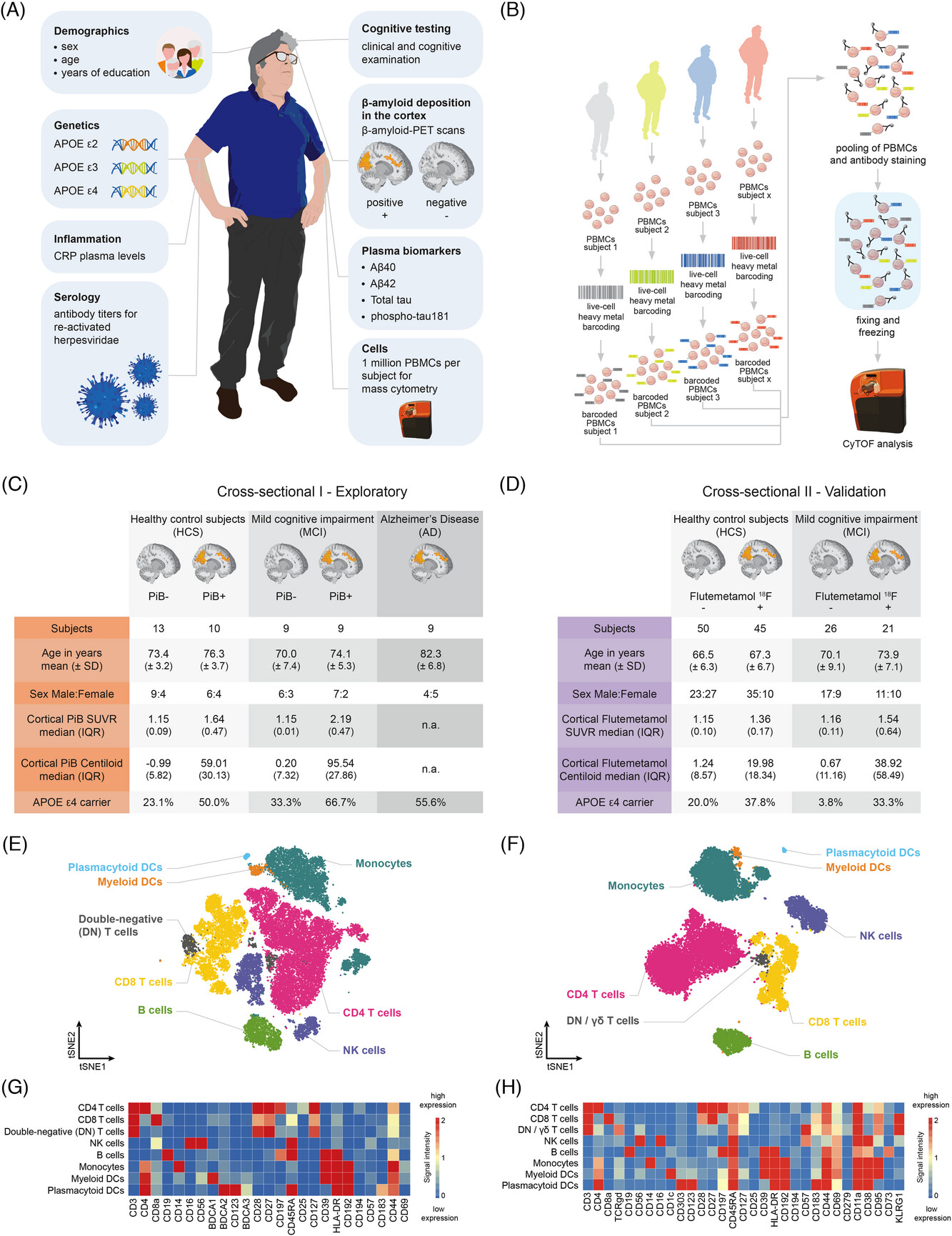New Paper in Alzheimers Dement. with contribution of the Latorre Group
A recent paper published in the journal "Alzheimer's & Dementia" by the Gericke/Nitsch Lab (UZH), in collaboration with Dr. Anna Mallone (Sallusto Lab, ETH), reveals an association between changes in antigen-experienced cytotoxic T cells and early stages of Alzheimer's disease pathology.
The development of rapid and non-invasive diagnostic methods for preclinical Alzheimer's disease (AD) is eagerly awaited. Recent evidence suggests the involvement of the adaptive immune system, in particular T and B cells, in response to cerebral β-amyloidosis. This has prompted the exploration of immune markers as potential indicators of early β-amyloid accumulation in the brain.
In this study, researchers from UZH and ETH employed state-of-the-art multidimensional mass cytometry techniques, aided by machine-learning, to examine T cell alterations in study cohorts including a total of 251 individuals. The findings suggest that systemic changes observed in the adaptive immune system are linked to the preclinical stage of AD pathology.

By combining these observations with clinical assessments such as the β-amyloid and tau status in the brain and changes in AD biomarkers found in blood plasma, novel diagnostic tools can be developed. These tools aim to enhance our understanding of AD pathology progression and will possibly predict clinical outcomes in individuals who are still cognitively healthy but show signs of initiated brain β-amyloidosis.